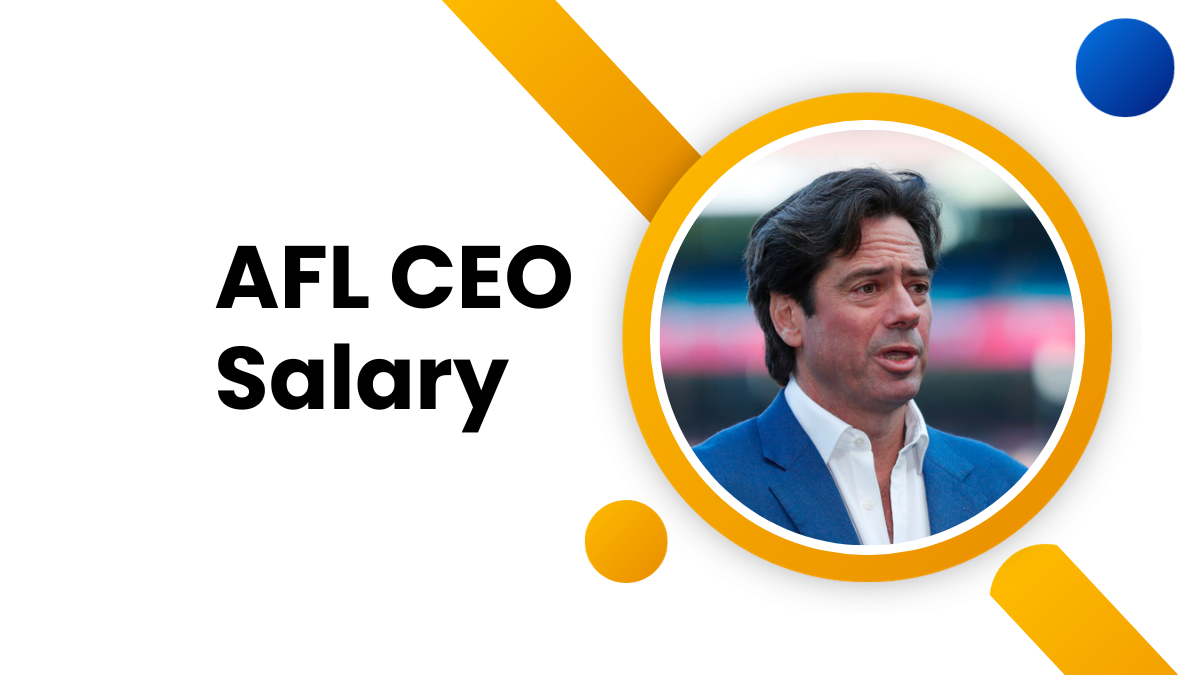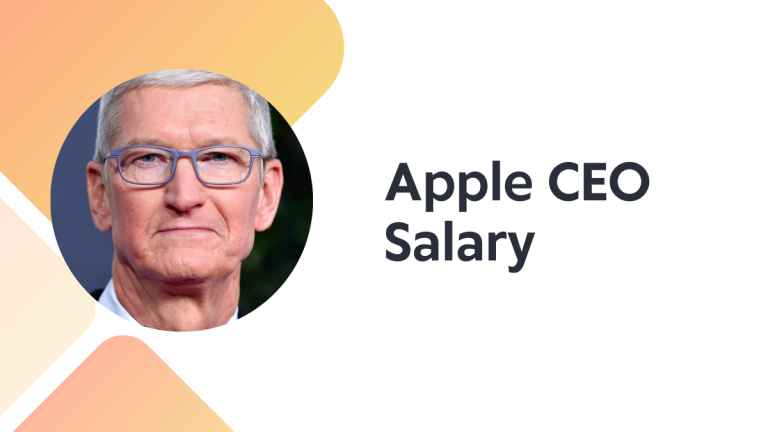The AFL CEO Salary: Insights and Analysis
Welcome to our blog post, where we dive deep into the world of AFL CEO salaries, unraveling the mysteries and shedding light on what goes on behind those impressive numbers. From jaw-dropping figures to controversial debates, join us as we dissect the insights and provide a comprehensive analysis that will leave you captivated.
Whether you’re an avid sports fan or simply curious about executive compensation in one of Australia’s most beloved leagues, this is your chance to get an exclusive backstage pass into the fascinating world of AFL CEOs’ remuneration packages. Get ready for a rollercoaster ride of facts, figures, and thought-provoking discussions that will keep you hooked until the very end!
Overview of the current AFL CEO salary
The Australian Football League (AFL) is one of the most popular and successful sporting competitions in Australia. As such, its Chief Executive Officer (CEO) holds a significant role in managing the league’s operations, finances, and overall success.
The salary of an AFL CEO has always been a topic of interest among fans, media, and stakeholders. In this section, we will take a detailed look at the current AFL CEO salary and how it compares to other major sports leagues around the world.
Current AFL CEO Salary
According to reports from the Australian Sports Commission’s AusPlay survey, the average annual income for a top-level executive in Australian sport is $350,000. However, the salary for an AFL CEO significantly exceeds this amount. The current wage for Gillon McLachlan as AFL’s chief executive is estimated to be around $1.74 million per year. This includes base pay as well as performance bonuses.
In comparison to other major sports leagues within Australia, such as National Rugby League (NRL), Australian Rugby Union (ARU), Cricket Australia (CA), Football Federation Australia (FFA), and Netball Australia, McLachlan’s salary is significantly higher than all other CEOs’ salaries combined.
Factors that influence the AFL CEO salary
The role of a CEO in any organization is crucial, as they are responsible for leading and making decisions that impact the overall success of the company. In the Australian Football League (AFL), this role is no different. The AFL CEO plays a pivotal role in shaping the direction and growth of one of Australia’s most beloved sports leagues.
One aspect that often draws attention when it comes to AFL CEOs is their salary. Many factors influence how much an AFL CEO earns, including performance, revenue, and market trends. In this section, we will delve deeper into these factors and explore their impact on the AFL CEO’s salary.
Performance: – The version of an AFL CEO has a significant influence on their salary. Just like any other executive position, CEOs are expected to deliver results and drive the success of the organization. In the case of the AFL, this means increasing viewership, fan engagement, sponsorship deals, and, ultimately, revenue for the league.
CEOs are often evaluated based on key performance indicators (KPIs) set by the board or stakeholders. These KPIs can include measures such as financial targets, membership growth rates, TV ratings, attendance numbers at games, and more. If an AFL CEO meets or exceeds these targets consistently over time, they may be rewarded with a higher salary or bonuses.
Analysis of past AFL CEO salaries and how they have changed over time
The salary of the CEO of the Australian Football League (AFL) has always been a topic of interest and speculation among fans, players, and industry insiders. As the leader of one of Australia’s most beloved and successful sports leagues, the AFL CEO carries immense responsibility and must possess a unique set of skills to navigate the ever-evolving landscape of professional sports.
In this section, we will delve into an in-depth analysis of past AFL CEO salaries and how they have changed over time. We will explore the factors that influence these salaries and provide insights into what drives changes in compensation for this highly coveted position.
To understand the evolution of AFL CEO salaries, we need to go back in time. In 1986, Ross Oakley became the first full-time CEO of the AFL (then known as VFL). At that time, he was paid a modest salary of $60,000 per year. This amount may seem relatively small compared to today’s standards, but it was considered substantial back then.
Over the next two decades, there were only four CEOs who occupied this prestigious role – Ross Oakley (1986-1996), Wayne Jackson (1997-2003), Andrew Demetriou (2003-2014), and Gillon McLachlan (2014-present). During this period, there were significant increases in their salaries as well as changes in their job responsibilities.
Criticisms and controversy surrounding the AFL CEO salary
Criticisms and controversy surrounding the AFL CEO salary have been a topic of discussion within the sports industry for many years. The high salaries of professional sports executives, including the CEO of the Australian Football League (AFL), have often drawn scrutiny from fans, media, and even players.
One of the main criticisms surrounding the AFL CEO salary is that it is seen as excessive and out of touch with reality. While most people in Australia earn an average annual income of around $86,000, former AFL CEO Gillon McLachlan’s reported salary in 2021 was $1.74 million. This vast difference in earnings has sparked outrage among fans who argue that this amount could be better spent on grassroots programs or player salaries.
Another criticism is directed towards the fact that CEOs like McLachlan do not have any direct impact on what happens on-field. While they oversee essential aspects such as financial management and strategic decision-making, critics argue that their role does not warrant such high salaries compared to players who are directly responsible for game outcomes.
The controversy also extends to how these high salaries affect smaller clubs within the league. With a significant portion of revenue going towards executive salaries, some argue that it further widens the gap between larger and smaller clubs, making it harder for smaller teams to compete financially.
Moreover, there are concerns about transparency regarding these high salaries. Unlike player contracts, which clubs publicly disclose, details about executive remuneration are not made readily available to the public.
Comparison of the AFL CEO salary to other top executive salaries in Australia
The AFL CEO salary has long been a topic of interest and debate among sports fans, media outlets, and industry professionals. Many have questioned whether the six-figure salary is justified for leading the Australian Football League.
To gain a better understanding of the AFL CEO salary, it’s essential to compare it to other top executive salaries in Australia. This will not only provide context but also shed light on how the league’s compensation structure compares to other industries.
According to data from the Australian Bureau of Statistics (ABS), as of May 2019, the average full-time adult wage in Australia was $1,647.90 per week or $85,611.80 per year. For those working in managerial positions across all industries, this number increased to an average weekly wage of $2,459.00 or $127,868 per year.
In comparison to these averages, the AFL CEO’s salary is significantly higher at an estimated $1 million per year. This raises questions about whether such a high salary is warranted for leading a sporting organization.
To put things into perspective, let’s take a look at some other top executive salaries in Australia:
- The CEO of Commonwealth Bank earned over $12 million during the 2020 financial year.
- The CEO of BHP Group received a total remuneration package worth nearly $18 million in 2020.
- The CEO of Telstra took home over $5 million in total remuneration during the same period.
Potential impact
The salary of the AFL CEO has been a topic of much discussion and debate in recent years. With the league’s growing revenue and increasing popularity, there have been calls for the CEO’s salary to be re-evaluated and potentially reduced. In this section, we will explore the potential impact on the league if such changes were to occur.
- Decrease in the overall perception of the league.
One of the potential impacts of reducing the AFL CEO’s salary is that it could lead to a decrease in the overall perception of the league. The CEO is often seen as one of the key figures representing and leading the organization. A significant decrease in their salary could be viewed as a lack of value placed on their role and responsibilities, which may reflect poorly on the league as a whole.
Moreover, a lower salary for the CEO may also suggest financial instability or struggles within the organization, which can negatively affect public perception and investor confidence. This could potentially lead to a decline in sponsorships and investments and ultimately impact future revenue growth for the league.
- Difficulty in attracting top talent
Another possible consequence of reducing the AFL CEO’s salary is that it may become more challenging to attract top talent for this crucial leadership position. The role requires an individual with solid business acumen, strategic thinking skills, and experience in managing large-scale operations.







